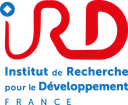I. M Sokolova and G. Lannig (2008)
Interactive effects of metal pollution and temperature on metabolism in aquatic ectotherms: implications of global climate change
Climate Research, 37(2-3):181-201.
In light of the current rising mean temperatures and fluctuations in temperature extremes involved in global climate change, a cause-and-effect understanding of the temperature-dependent impacts of additional environmental stressors on marine life is crucial for the elaboration of how marine ecosystems will shape in the future. The thermal environment plays a direct role in the distribution and survival of marine ectotherms through the temperature-dependent effects on their physiology, as well as indirectly by affecting the organism’s susceptibility to other biotic and abiotic stressors. We review studies that have investigated the effects of temperature and anthropogenic pollution by trace metals, with a focus on metabolic regulation as a major mechanism that underlies the interactive effects of temperature and metals on the physiology and survival of ectotherms. These studies suggest that impairment of energy metabolism plays a key role in the synergistic effects of these stressors, and we elaborate a mechanistic framework for understanding these interactions. Furthermore, the present study seeks to provide an impetus for future investigations in order to define more precisely the physiological mechanisms and functional properties of temperature–pollution interactions.
Actions sur le document










